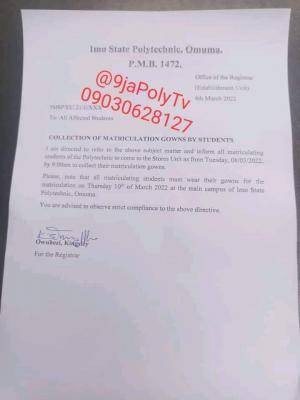
The plan by the Federal Government to exclude some state universities from the list of benefitting institutions of the N220bn 2014 funding to public varsities is generating fresh controversy in the nation’s education sector.
The Federal Government may be stirring up a hornets’ nest with its plan to exclude some state universities from the N220bn 2014 funding to public universities.
The Implementation Monitoring Committee has reportedly excluded some state universities from the list of beneficiaries. One of FG’s promises was the injection of N220bn annually into the universities for the next five years based on the NEEDS Assessment Report.
This much it signed for in the Memorandum of Understanding with the Academic Staff Union of Universities in December before the union suspended its over five-month-old strike.
The fund was meant for the improvement of infrastructure, capacity building for lecturers and learning resources.
The decision by the FG would undoubtedly come as a surprise to members of the union in state universities because the over five-month-old strike was suspended after the government’s pledge to inject N1.3tn into public universities between 2013 and 2018.
Besides the injection of N220bn yearly into the varsities from 2014, FG also promised to domicile N200bn in a special account at the Central Bank of Nigeria for the remaining part of the 2013 after the suspension of the strike.
As a foolproof to the new agreement after government’s failure to abide by the terms and conditions of the 2009 agreement, ASUU leadership demanded among others a proper monitoring and verification of the N30bn already released and provision of N1.3tn for the revitalisation of the university system from 2013 to 2018.
Reacting to the development, Chairman, ASUU, Ekiti State University branch, Dr. Ayan Adeleke, said no university would be excluded from the funding since all public varsities were captured by the NEEDS Assessment Report.
Adeleke also said only states with more than one university could have problems in the sharing formula.
He said, ‘‘No university will be excluded since all of them were captured by the NEEDS Assessment Report. The only problem will be in states with more than one university because the Federal Government will assist only one university yearly.’’
To the ASUU chairman, Osun State University, Dr. Joseph Abiona, the union had an agreement with the Federal Government and nothing could be done outside it.
He said, “I am not aware of any exclusion of some state universities from the sharing of the N220bn fund. One thing I know is that the union entered into an agreement with the FG before the suspension of the strike.”
The Chairman, ASUU, Lagos State University chapter, Dr. Adekunle idris, who said he didn’t know the reasons for the planned exclusion of state varsities from the funding, added that it was not right to exclude any university.
He however said he was aware that some states were accused of operating two public universities.
Idris said, “ASUU embarked on the recently suspended strike to demand improved infrastructure in public varsities. I know that there have been some arguments about some states having more than one public university, but we should know that the state universities have ‘Nigeria’ on them. I don’t think any of them should be excluded from the fund.”
He also said the universities have similar problems of infrastructure and other identified problems confronting public universities in the country.
On his part, Chairman, Enugu State University of Science and Technology branch of ASUU, Prof. Gabriel, Agu, however said the union would await government’s decision on the matter before taking a position.
Stating that the National Executive Committee of the union would study the situation against the background of the recent strike by the union, he added that the leadership would not hesitate to give an appropriate directive as necessary.
According to him, it is hoped that the issue would be well managed so that it does not generate another crisis.
He said, ‘‘We will wait until we get to the bridge and consider whether to cross it or not. ASUU-NEC, after a careful study of the situation against the background of the recent agreement with the Federal Government that led to the suspension of the last ASUU strike, will give a considered response. It will also give the necessary directive. We hope it is well managed so that it does not precipitate another ground for disagreement and agitation.’’
The Union’s President Dr. Nasir Fagge, had said while calling off the strike on December 17, last year that the union’s NEC expected the government to fully implement the resolutions reached and signed with the union.
Fagge also expressed optimism that the constituted implementation committee would work diligently to facilitate the revitalisation of public universities so they could receive the needed impetus to be at par with their counterparts abroad.
He said, ‘Finally, NEC resolved to suspend the strike embarked upon on July 1, 2013, with effect from Tuesday December, 17, 2013 and directs its branches to resume work forthwith. We condemn, without any reservation, Vice Chancellors, who made efforts to undermine and, in some cases, attempted, to break ASUU’s strike.
“First we expect that the implementation monitoring committee which has already been constituted to the satisfaction of government and ASUU, will work assiduously so that the process of revitalisation of Nigerian universities will receive the much needed boost, and our students and their parents will begin to see the fruits of the ASUU struggles.’’



